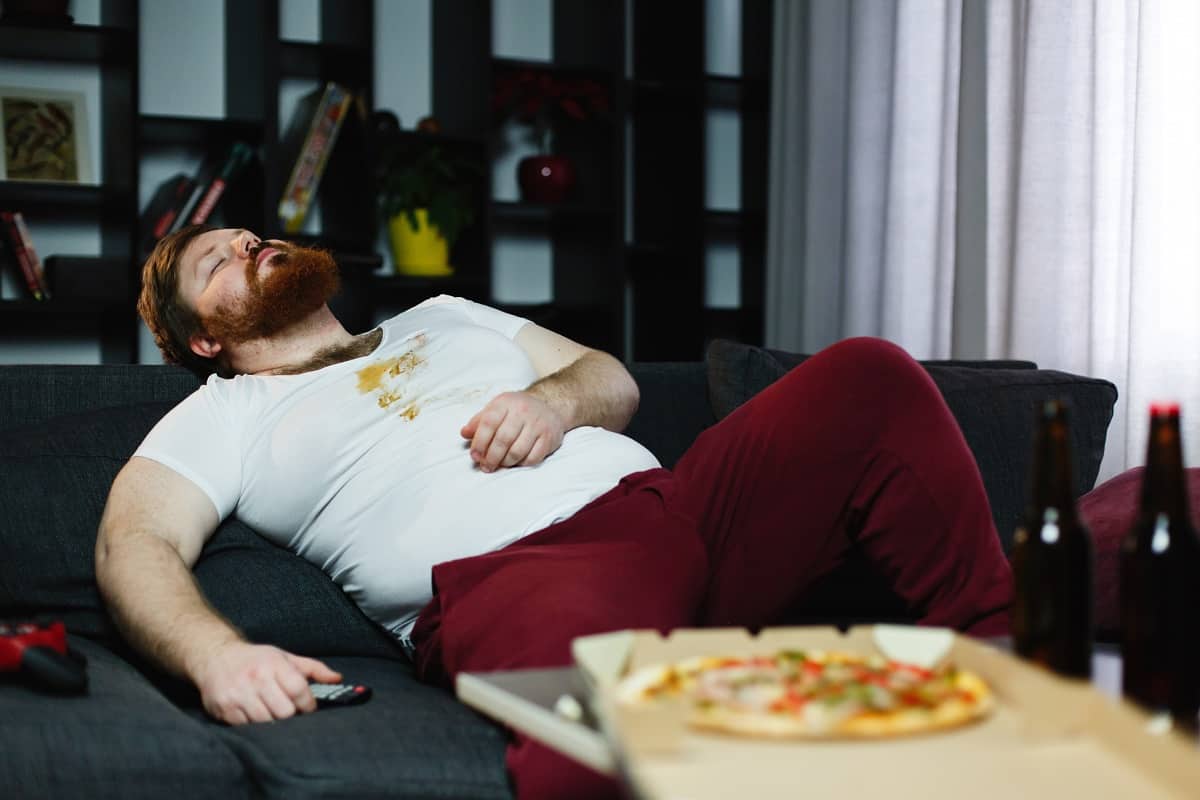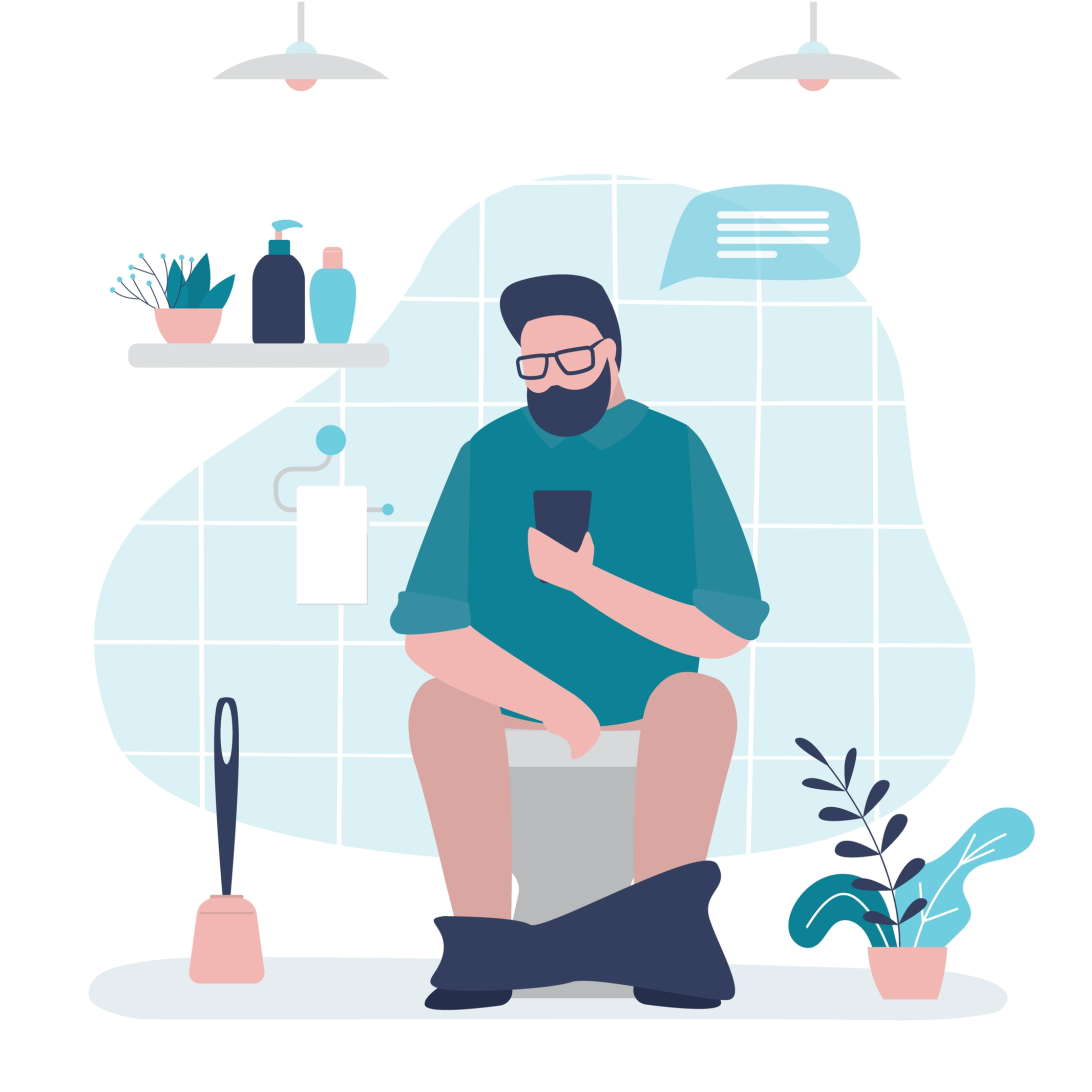Food is fuel—until you crush an entire brunch buffet or take down a full pizza solo. Then, instead of feeling energized, you’re slumped on the couch, questioning your life choices as your eyelids get heavier by the second.
Yep, you’ve entered a food coma.
Some people might think "food coma" is just a fancy excuse to dodge doing the dishes, but science says otherwise. That post-meal crash isn’t just in your head—it’s a legit biological phenomenon.
So what exactly turns a feast into an impromptu nap? In this article, we’re breaking down why food comas happen, how to snap out of one, and whether there’s any way to avoid them (besides just eating less).
What Is a Food Coma?
A food coma is the not-so-medical term for that overwhelming drowsiness that hits after a massive meal. The exact cause? Scientists aren’t totally sure, but it likely comes down to a mix of blood flow changes, hormone shifts, and whatever you just stuffed your face with (we’ll get into those theories in a sec).
If you want to get fancy, the technical name for a food coma is postprandial somnolence—a term that sounds like a medieval curse but just means “sleepiness after eating.” Some researchers also call it the post-dinner dip, which is a polite way of saying “I just ate an entire Thanksgiving dinner and now I can’t move.”
And yes, food comas are real. A 2019 study of truck drivers found that those who ate heavier meals felt significantly sleepier than those who kept it light—bad news if your job involves staying alert on the road, but great validation for anyone who’s passed out mid-Netflix binge.
Unlike an actual coma (where your brain checks out completely), food comas are harmless—just a sign that you might have overdone it. Common symptoms include:
- Feeling sleepy and sluggish
- A sudden, profound sense of laziness
- Trouble focusing
Anybody can experience a food coma. However, food comas tend to be more common among obese people than lean people, according to a 2018 study in Molecular Metabolism.
What Causes a Food Coma?
Scientists haven’t cracked the food coma mystery yet—probably because there’s not a ton of research on it, and people react to food in wildly different ways.
Your dad might need a nap after every meal, while you can obliterate an entire Thanksgiving dinner and still be down for a game of pickup basketball.
That said, there are a few solid theories behind why food comas happen. Let’s break down six of the biggest ones, starting with the most obvious.
1. Eating Massive Meals
Consuming a large amount of food taxes your digestive system. Your body expends a lot of energy breaking everything down and absorbing nutrients, which can wear you out.
Researchers found that fruit flies were more likely to sleep after a big meal compared to a small meal, especially if the meal contained a lot of protein.
Big meals also cause your blood sugar to spike. This might give you a short burst of energy, but then you’ll crash later.
2. The Type of Food You Eat
Food comas are mostly about how much you eat, but what you eat matters too.
- High-protein meals can make you tired since protein stays in your stomach longer.
- High-fat foods are a culprit for food comas since they take a long time to digest.
- Starchy carbs like white bread, mashed potatoes, and pasta cause your blood glucose levels to spike. The inevitable crash can put you in a food coma.
For the record, macronutrients like protein, carbs, and fat themselves don’t cause food comas. It’s imbalances and high volumes that knock you out.
3. Hormones: Tryptophan and Serotonin
Meal time can trigger certain hormones that induce food comas. Take tryptophan, for example. Tryptophan is an amino acid that produces serotonin: a hormone that makes you feel more relaxed and fall asleep.
A common myth is that turkey is super-high in tryptophan. However, turkey’s tryptophan content is similar to chicken, beef, and other types of meat.
It’s believed that consuming tryptophan with a high-carb meal can exaggerate its effects, but there isn’t sufficient evidence to prove that theory.
4. Blood Flow Changes
Eating activates your parasympathetic nervous system (PNS), which controls your blood pressure and digestive system. When food goes into your gastrointestinal tract, it increases blood flow to your stomach and intestines.
One theory is that this limits blood flow to your brain, inducing a food coma. However, most doctors agree that blood flow to the brain is regulated by the circulatory system and isn’t affected by eating.
5. Eating in the Middle of the Day
If you experience more food comas after lunch compared to dinner, it’s not your imagination.
Your circadian rhythm causes you to get sleepy in the late afternoon. Even if you don’t eat a heavy meal, your energy levels will probably dip between 1-3 p.m. However, if you combine your afternoon slump with the aftermath of a greasy burger, your coworkers will have to use a forklift to get you out of the office.
6. Boozing While You Eat
If you pair a heavy meal with heavy drinking, you may be more susceptible to a food coma. Alcohol is a depressant, which means it makes you sleepy. Of course, if you enjoy a boozy meal and fall asleep afterward, the line between food coma and passing out gets blurred.
As you can see, there isn’t a clear cut answer for what causes food comas. Some of the theories overlap and others contradict each other. The main point is that when you stuff yourself with protein, carbohydrates, and fat, you’re gonna feel sleepy afterward.
How Long Does a Food Coma Last?
You can expect the fatigue from a food coma to last between 2-4 hours. However, that estimate is based on anecdotal reports. There’s no concrete evidence for how long food comas last.
Falling into a food coma after a Thanksgiving feast is no big deal since you can just veg out on the couch and watch football. But if you gorge yourself on a weekday and have work to do, you’ll need to snap out of it.
How to Get Out of a Food Coma
Waking up from a food coma isn’t as simple as just snapping out of it. It’s more like trying to escape quicksand—except instead of sinking, you're just getting progressively lazier. But don’t worry, there are a few tricks to snap yourself back into functioning human mode, even with a bloated stomach.
1. Get Moving
The last thing you probably want to do after a massive meal is move. But physical activity is actually one of the best ways to kickstart digestion and shake off that sluggish feeling. You don’t have to sprint through your neighborhood or tackle a HIIT workout; just take a quick walk. Even a casual stroll will get your circulation moving and give you a much-needed energy boost.
2. Drink Some Coffee
Caffeine is the classic antidote to sleepiness, and a cup of coffee can jolt you back to life. Just beware you might crash from your caffeine high (and it will probably make you poop).
3. Look at Blue Light
This is a weird one, but a 2015 study showed that exposure to blue light after lunch reduced fatigue and increased productivity. Blue light comes naturally from the sun, so spending time outside may do the trick.
How to Prevent a Food Coma
If you’d rather avoid the post-meal crash altogether, here are a few ways to outsmart your body’s tendency to shut down after stuffing your face.
- Eat smaller meals: That’s easier said than done when you’re staring down a buffet, but slowing down and limiting your portion sizes will help you feel less sluggish, even if you don’t make the healthiest choices.
- Pick smarter foods: You probably won’t fall victim to a food coma by eating veggies and lean protein.
- Get plenty of sleep: If you’re sleep deprived going into a heavy meal, your chances of a food coma go up.
Get Ready for a Post-Coma Crap
There’s a lot of mystery surrounding food comas. But one thing is certain: You’re going to take a massive dump sooner or later. You don’t want to be sleepy and smelly, so make sure you’re stocked up on DUDE Wipes to clean up the aftermath down below.

























